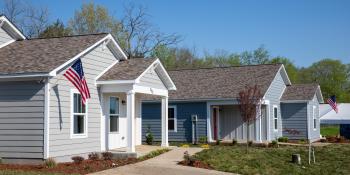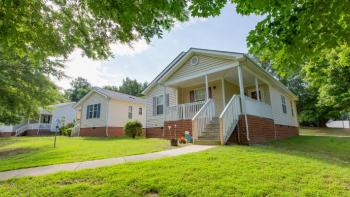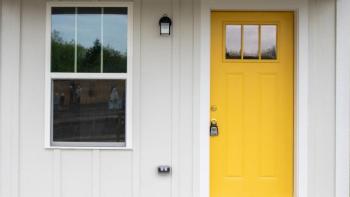
Research series: Who has access to homeownership?
Homeownership creates long-lasting and life-changing impact on families and communities, including providing a source of wealth and asset-building, influencing health and educational outcomes, and contributing to positive community development. The first step in bringing homeownership to more families, however, is to understand who currently has access to homeownership and what factors play a role.
Through a series of evidence briefs, Habitat is bringing to light research on the impact that affordable housing has on individuals and families in the U.S. at home and beyond. This evidence brief takes a look at the trends in homeownership, including how factors such as race play a role. Check out the highlights below and download the full evidence brief.
Research highlights
Trends in homeownership
- In 2018, the U.S. Department of Housing and Urban Development estimated a need for 2.5 million additional housing units to meet long-term housing demand.
- With home prices increasing rapidly, it can be hard to keep up when household incomes have not kept pace. Prices for more affordable homes — those affordable at 75% of the metro area median income and below — have increased at nearly twice the rate of expensive homes — those affordable at 125% of metro AMI and above.
- A 2018 Urban Institute study found that 68% of renters identify saving for a down payment as the greatest barrier to homeownership.
- Foreclosure rates were lower among borrowers with safer and more affordable mortgages, regardless of race and ethnicity.
Racial homeownership gap
- The homeownership rates for Black and Hispanic/Latinx households continue to trail that of white households. As of the first quarter of 2020, the homeownership rate of white households exceeded that of Black and Hispanic/Latinx households by 25-30 percentage points.
- Between 1976 and 2016, despite the national passage of laws aimed at reducing discrimination in private lending, racial gaps in loan denial remained persistent: Black and Hispanic/Latinx borrowers had a higher probability of being denied a loan and of receiving a high-cost mortgage as compared with their white counterparts.

